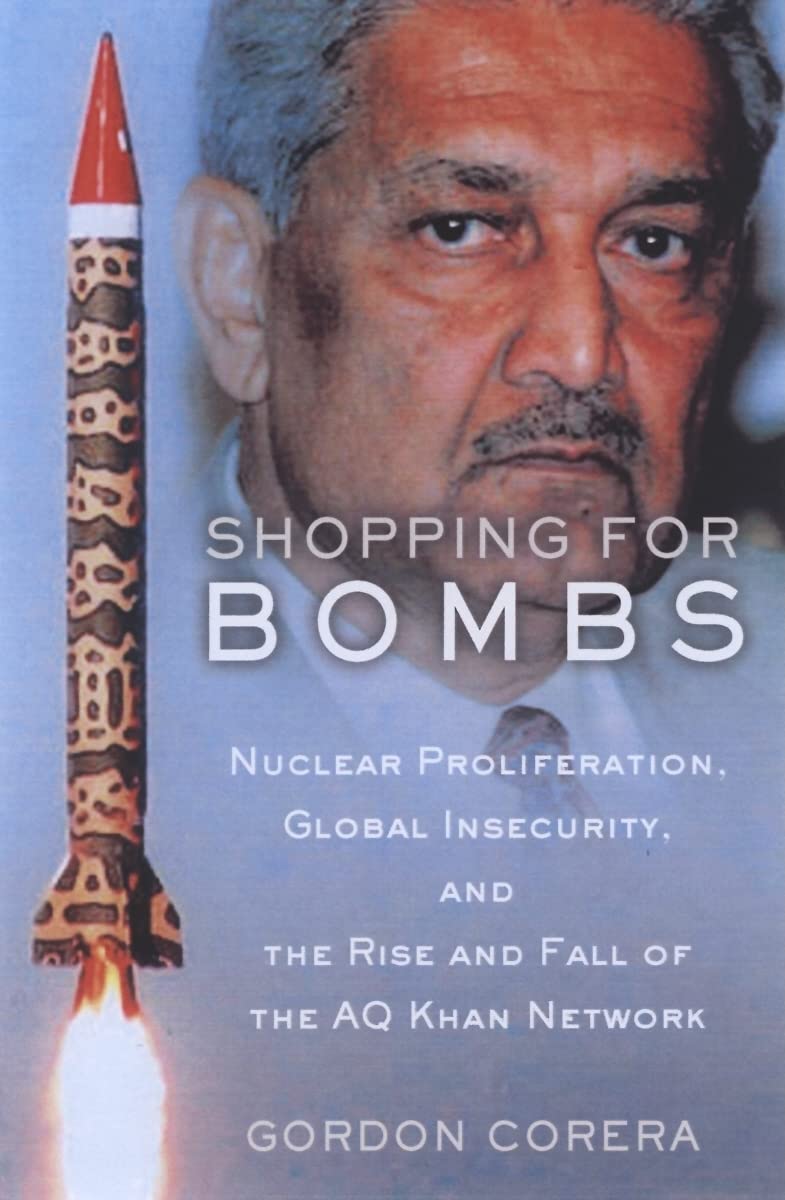
Shopping for Bombs: Nuclear Proliferation, Global Insecurity, and the Rise and Fall of the A.Q. Khan Network
FREE Shipping
Shopping for Bombs: Nuclear Proliferation, Global Insecurity, and the Rise and Fall of the A.Q. Khan Network
- Brand: Unbranded

Description
The general consensus among experts is that if Putin were to reach for his nuclear weapons in the course of his war in Ukraine, he wouldn’t select the kind of long-range, city-destroying, “strategic” nuclear weapons that were so prominent during the Cold War. Instead, he’d likely opt for one or several of the country’s roughly 2,000 tactical nuclear weapons—less explosive, shorter-range arms intended for use on a battlefield. In such circumstances, “I think President Biden and other officials would”—publicly and privately—“signal very aggressively to the Russians to dissuade them from escalating the conflict with nuclear weapons,” Jeffrey Lewis, a nuclear-nonproliferation expert at the Middlebury Institute of International Studies at Monterey, told me. This should include requiring the Saudis to adopt the International Atomic Energy Agency’s Additional Protocol, a safeguards agreement that give the agency additional tools to verify that all nuclear materials in the kingdom are being used peacefully. The agreement should also require Saudi Arabia to acquire nuclear fuel from foreign suppliers, and export the reactor spent fuel for storage abroad. These conditions would diminish justification for uranium enrichment or opportunities for plutonium reprocessing for weapons.
It is understandable that the Trump administration might want to support the U.S. nuclear industry, which is shrinking at home. However, the congressional report raised concerns that the group seeking to make the sale may have have sought to carry it out without going through the process required under U.S. law. Doing so could give Saudi Arabia U.S. nuclear technology without appropriate guarantees that it would not be used for nuclear weapons in the future. A competitive global market Intercepted communications suggesting forthcoming nuclear use and corresponding movements of Russian forces or military assetsThe experts I consulted also agreed that Putin himself would probably want to telegraph to the world in subtle or blatant ways that he’s making these moves—in part because he could never be fully confident of taking these steps without his adversaries detecting them, but also because, as Lewis put it, he would want “to see if he could get what he wants for free.” Saudi leaders have also expressed clear interest in establishing parity with Iran’s nuclear program. In a March 2018 interview, Saudi Crown Prince Mohammed bin Salman warned, “Without a doubt, if Iran developed a nuclear bomb, we will follow suit as soon as possible.” Exporting nuclear technology is lucrative, and many U.S. policymakers have long believed that it promotes U.S. foreign policy interests. However, the international market is shrinking, and competition between suppliers is stiff. American nuclear suppliers claim that these strict conditions and time-consuming legal requirements put them at a competitive disadvantage. But those conditions exist to prevent countries from misusing U.S. technology for nuclear weapons. I find it alarming that according to the House report, White House officials may have attempted to bypass or sidestep these conditions – potentially enriching themselves in the process.
In a similar spirit, I asked several experts to share the indicators they’re watching most closely to determine whether Russian nuclear use in Ukraine is imminent—and to help us all separate the signal from the noise. I n recent weeks, U.S. and allied officials have repeatedly stated that they have not detected signs of imminent Russian nuclear use. And the experts I consulted mostly concurred, although Kroenig noted that because Putin is beginning to lose the war and sharpen his threats, “we are already in the danger zone.” With the world’s second-largest known petroleum reserves, abundant untapped supplies of natural gas and high potential for solar energy, why is Saudi Arabia shopping for nuclear power? Some of its motives are benign, but others are worrisome. Saudi Arabia is also the largest producer of desalinated water in the world. Ninety percent of its drinking water is desalinated, a process that burns approximately 15 percent of the 9.8 million barrels of oil it produces daily. Nuclear power could meet some of this demand. I do believe that we are at least several steps away from” Russian nuclear use in Ukraine, Pavel Podvig, an expert on Russian nuclear forces, told me.I f Vladimir Putin were to decide to use nuclear weapons in Ukraine, would we know ahead of launch? If so, how exactly would we know? Flynn resigned soon afterward and now is cooperating with the investigation into Russian interference in the 2016 campaign. But IP3 access to the White House persists: According to press reports, President Trump met with representatives of U.S. industry, a meeting organized by IP3 to discuss nuclear exports to Saudi Arabia as recently as mid-February 2019. Rules for a Saudi nuclear deal We will know it when we see that,” Podvig said of a possible rhetorical shift. “My take is that, so far, we haven’t seen it.”
- Fruugo ID: 258392218-563234582
- EAN: 764486781913
-
Sold by: Fruugo
